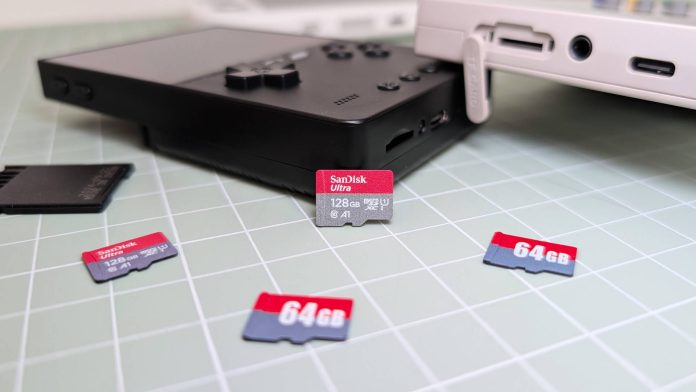Emulation handhelds have exploded in popularity over the past few years. But despite their growing mainstream appeal, they still exist in a legal and ethical gray area when it comes to piracy. While emulators themselves are perfectly legal, many devices come bundled with microSD cards crammed full of sketchy pre-loaded ROMs.
Recently, this practice landed an Italian YouTuber in serious legal trouble. Authorities threatened them with steep fines and up to three years in prison for “promoting piracy.” While that case involves several moving parts, such as YouTube, customs inspections, and outdated Italian copyright laws, it raises an important question for everyday gamers: What does this mean for you, the casual retro enthusiast just trying to relive some childhood favorites?
As someone who has reviewed these devices extensively, I get the appeal. A handheld packed with thousands of games sounds convenient. But there are several reasons I strongly advise against buying one, so let’s start with the most obvious.
Like it or not, it’s illegal
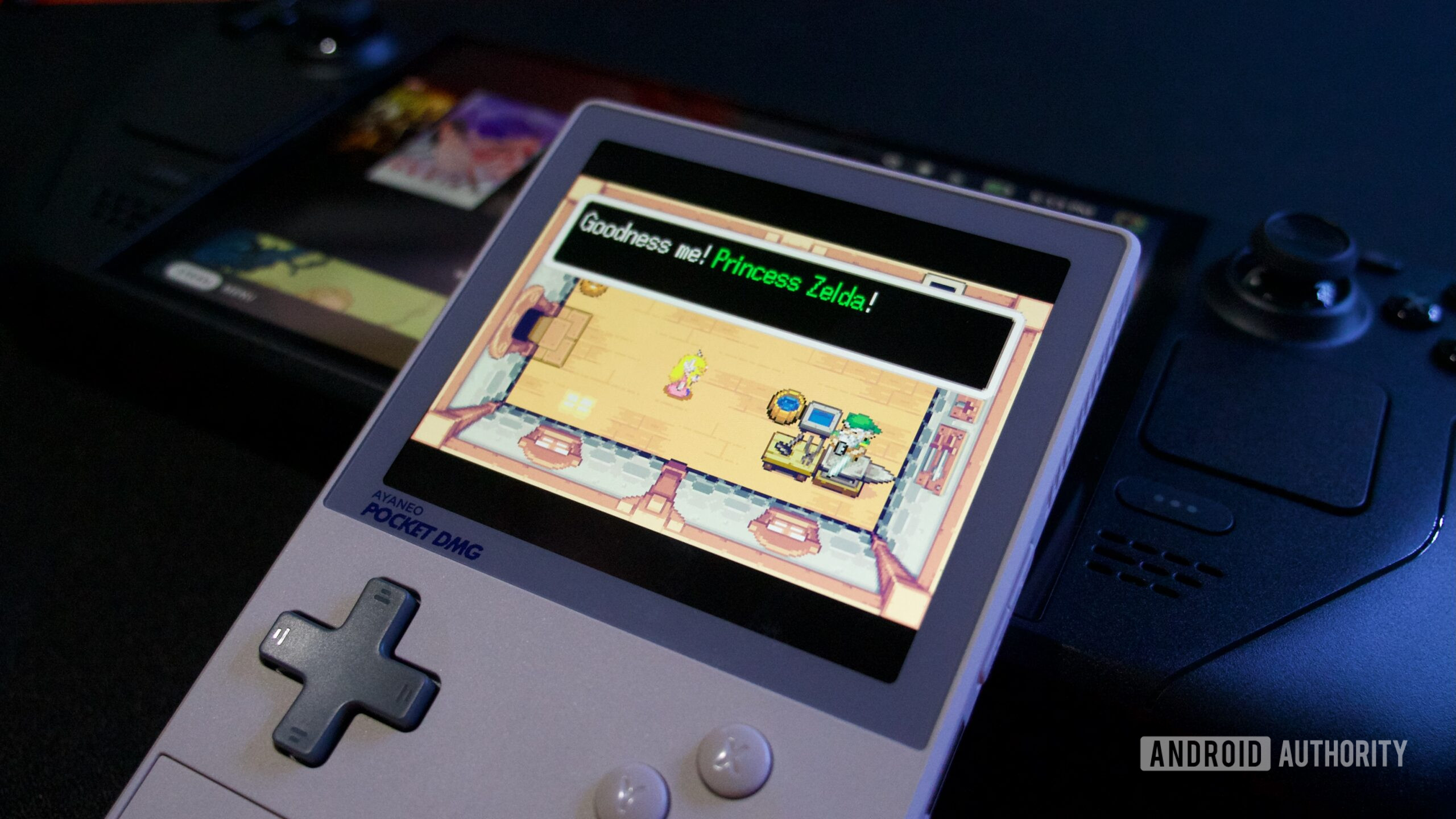
Oliver Cragg / Android Authority
Many retro gamers like to argue that pirating ROMs is a victimless crime. After all, the games are out of print, the original developers might not even exist anymore, and nobody’s making money from them — right?
Unfortunately, the law doesn’t see it that way. No matter how old or obscure the title, downloading or sharing pirated games is illegal. It doesn’t matter if the game hasn’t been sold commercially in decades or if you’re just trying to revisit your childhood. Copyright law still applies.
Of course, you could argue that these laws should be changed. Most copyright laws are wildly out of touch with the modern digital economy, and game preservation efforts (particularly in Europe) have begun to gain steam.
Handhelds that ship with pre-loaded ROMs are skating on thin legal ice.
Regardless, you should know that any third-party device that ships with games is probably skating on thin legal ice. There are exceptions, like the Nintendo Classic Mini or Evercade’s new Super Pocket NEOGEO handheld, but when it comes to cheaper handhelds from ANBERNIC, TrimUI, PowKiddy, or others, there’s no legal gray area. If they ship with games, they’re almost certainly breaking the law.
That doesn’t stop retailers from hocking shady goods, even on Amazon, but my advice would be to stay away. In the case of ANBERNIC, you can buy most Android handhelds without a microSD card and supply your own, legally ripped ROMs. That’s how I recently reviewed the RG Slide, which didn’t come with games but did come with pre-configured emulators. The setup was still seamless and 100% legal.
16-bit clutter
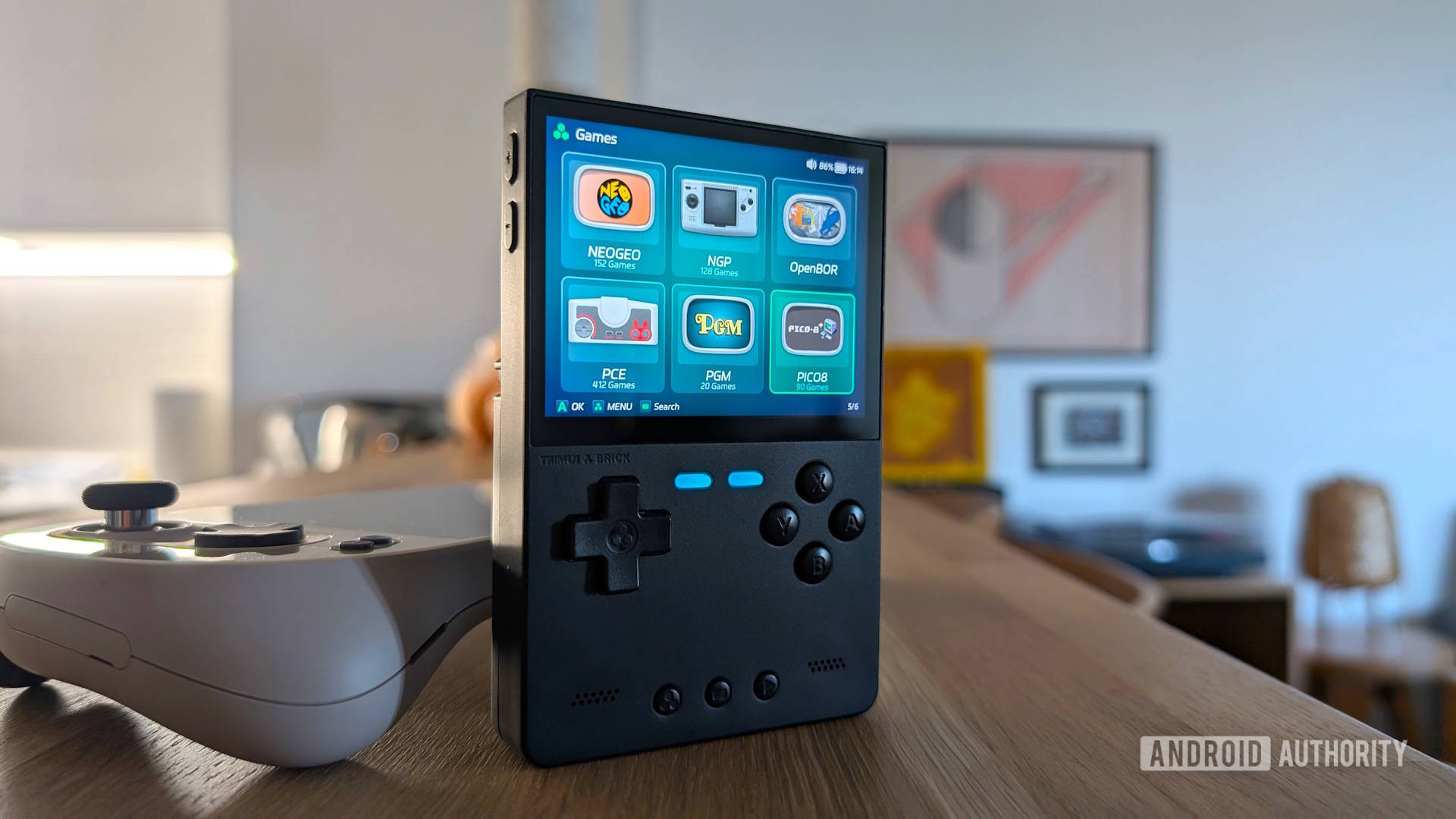
Nick Fernandez / Android Authority
I suspect some of you reading this aren’t swayed by the legal argument, but there are still reasons to avoid handhelds with pre-loaded ROMs. For starters, the ROMs themselves are typically quite poor.
Devices that advertise “10,000 games” are almost guaranteed to be stuffed with filler. That includes both games that no one in their right mind would want to revisit in 2025, as well as games that simply won’t load. Some are also Chinese language versions of games, which can kill the nostalgia you’re looking for.
One of the great joys of retro gaming is curating your library.
Worse still, the file organization is a nightmare. These ROMs often use inconsistent or meaningless naming conventions, which completely wreck the user experience. Emulation frontends like ES-DE struggle to parse the chaos, turning precious retro game time into an exercise in frustration.
When I reviewed the TrimUI Brick last December, I ran into exactly this problem. Every ROM started with a random number, and the only way to find anything was through keyword search. Scrolling through the library felt more like digging through a broken spreadsheet than enjoying classic games. I couldn’t purge the SD card fast enough.
My advice? Start fresh. Load a curated selection of games you actually want to play, legally ripped from your own collection. Not only can you ensure they’re good quality, but you’ll also avoid decision paralysis when choosing your next retro experience. One of the great joys of retro gaming is curating your library, whether that’s physical or digital.
Bad ROMs, worse SD cards
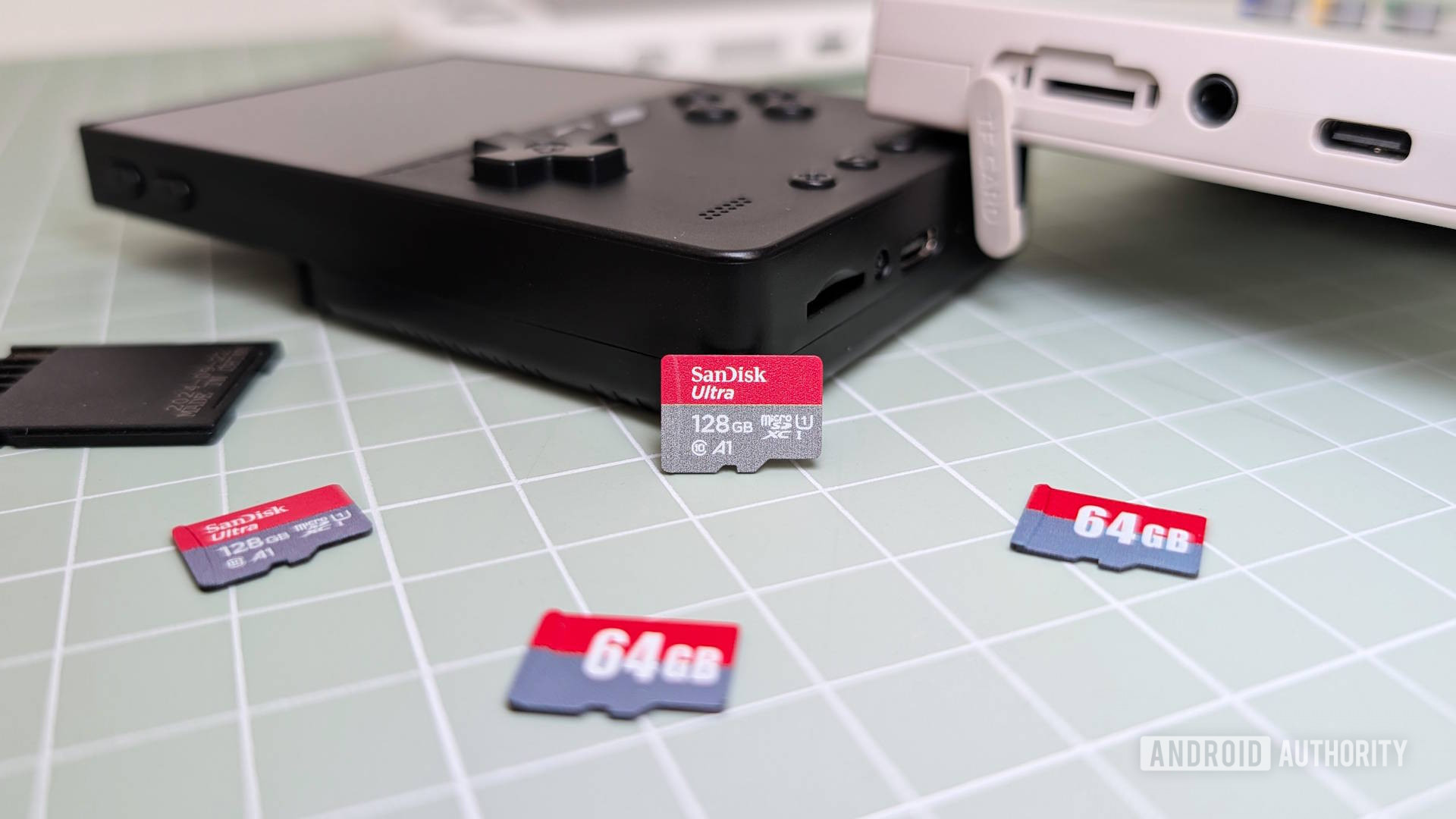
Nick Fernandez / Android Authority
Maybe you’re okay with sifting through mountains of junk ROMs to find that one nostalgic gem. Fine. But what if I told you that all that digital clutter is sitting on a ticking time bomb?
That’s the reality of the cheap microSD cards that ship with these devices. To cut costs, most companies use the cheapest generic cards on the market. These have unacceptably high fail rates, with most lucky to last longer than a few months before they bite the digital dust.
If you’re using an Android-based handheld, this might not be a total disaster. Android is typically installed on the device’s internal storage, so the microSD card mostly holds your games. However, for Linux-based systems, the microSD card often serves as the entire operating system. The device becomes completely useless without it.
Cheap microSD cards rarely last longer than a few months.
My preferred method for avoiding this is using third-party launchers. On the TrimUI Smart Pro, CrossmixOS offers a much better experience than the stock OS, with others like NextUI providing a more streamlined approach. Even the fan-favorite Miyoo Mini also owes much of its success to the likes of OnionOS and MinUI.
You can download these for free (without any ROMs) on GitHub, toss them onto a high-quality microSD card, and enjoy a far better and longer-lasting retro gaming experience..
A brighter retro future
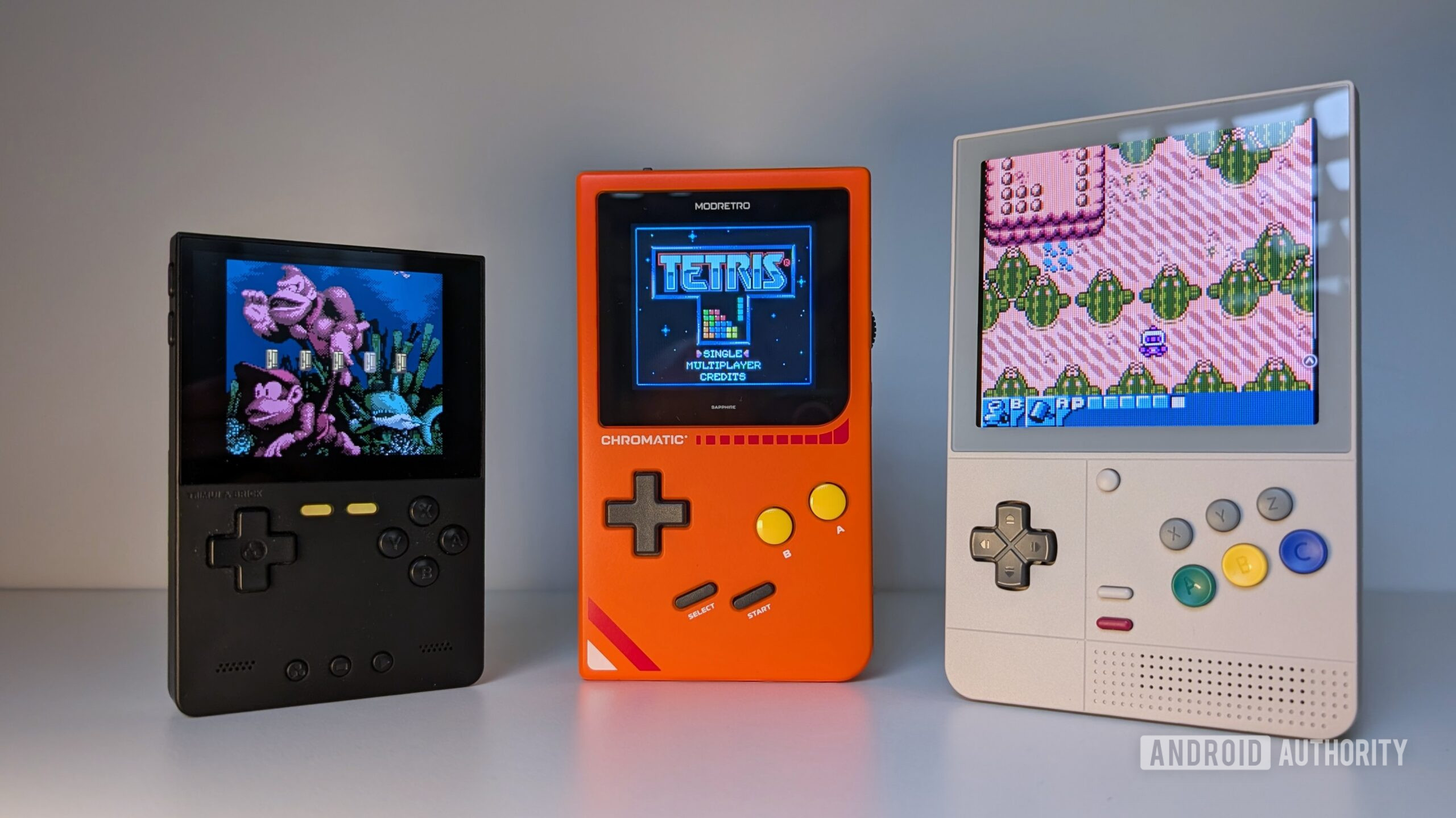
Nick Fernandez / Android Authority
The final reason to avoid handhelds packed with pre-loaded games has nothing to do with the games themselves. It’s about the companies behind them.
As a general rule, any brand that uses pirated ROMs as a selling point isn’t exactly going to offer great customer support. In fact, many of these devices aren’t even sold by the companies that design them. Often, they are designed by a company, such as TrimUI or MagicX, then manufactured, published, and sold by a separate company, like AMPOWN.
Some of these companies offer some level of customer support, but their main market is wholesale. In other words, you’re probably going to buy these from a middleman with no interest in retaining you as a customer. If you’ve ever bought anything on AliExpress, you know that storefronts pop up and disappear like Duck Hunt targets.
Your odds are much better buying from companies that don’t ship their devices with games, such as Retroid, AYN, and AYANEO. I’m not going to lie to you and tell you that they are the pinnacle of customer service, but in the emulation handheld world, it’s as good as it gets. Those companies are paving the way toward a more legitimate and sustainable future for emulation handhelds.
And at the end of the day, that’s what really matters. It’s not about hoarding thousands of games you’ll never play; it’s about revisiting the ones that meant something. Retro gaming should be about preserving the past, not just downloading it.
